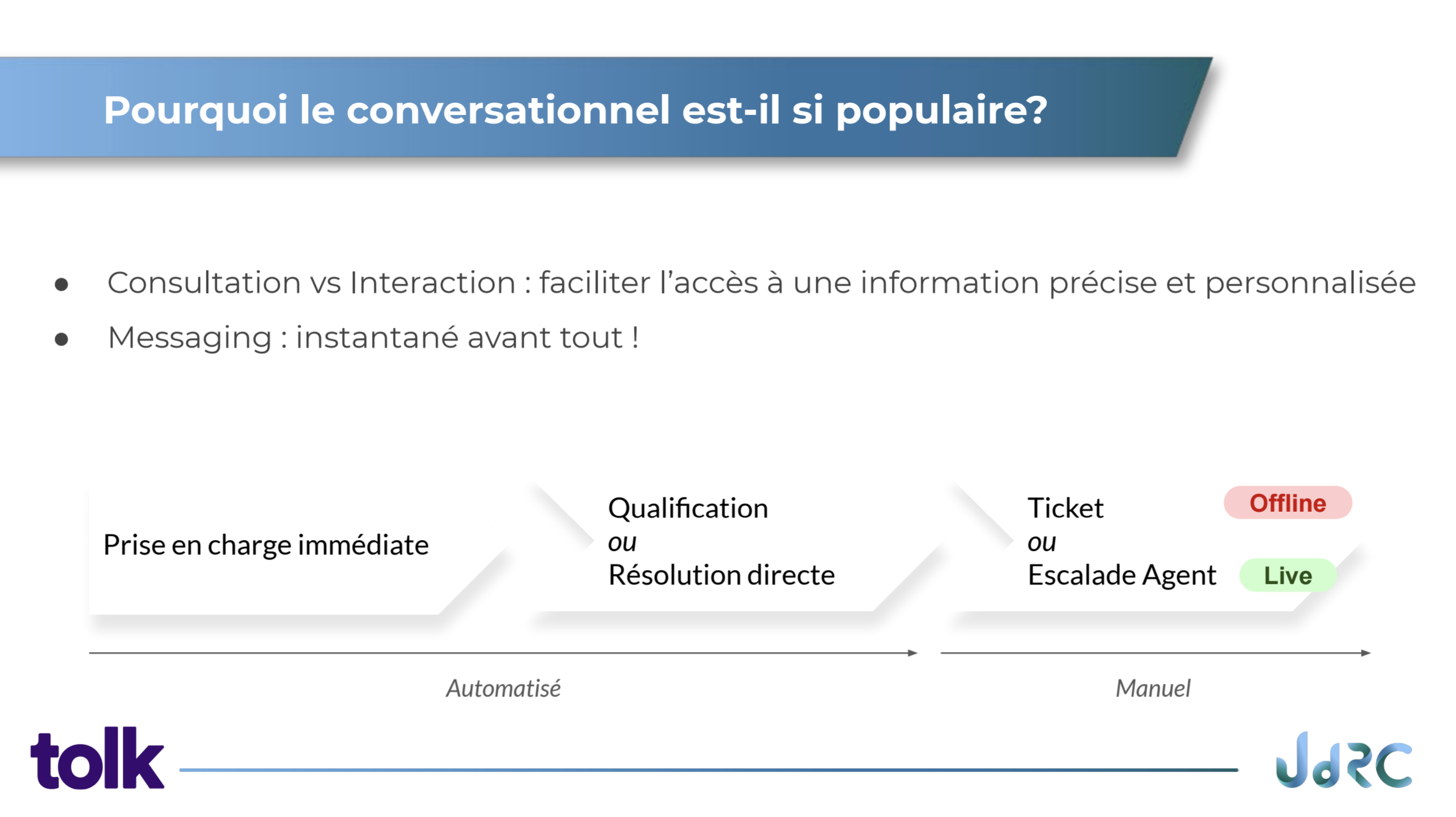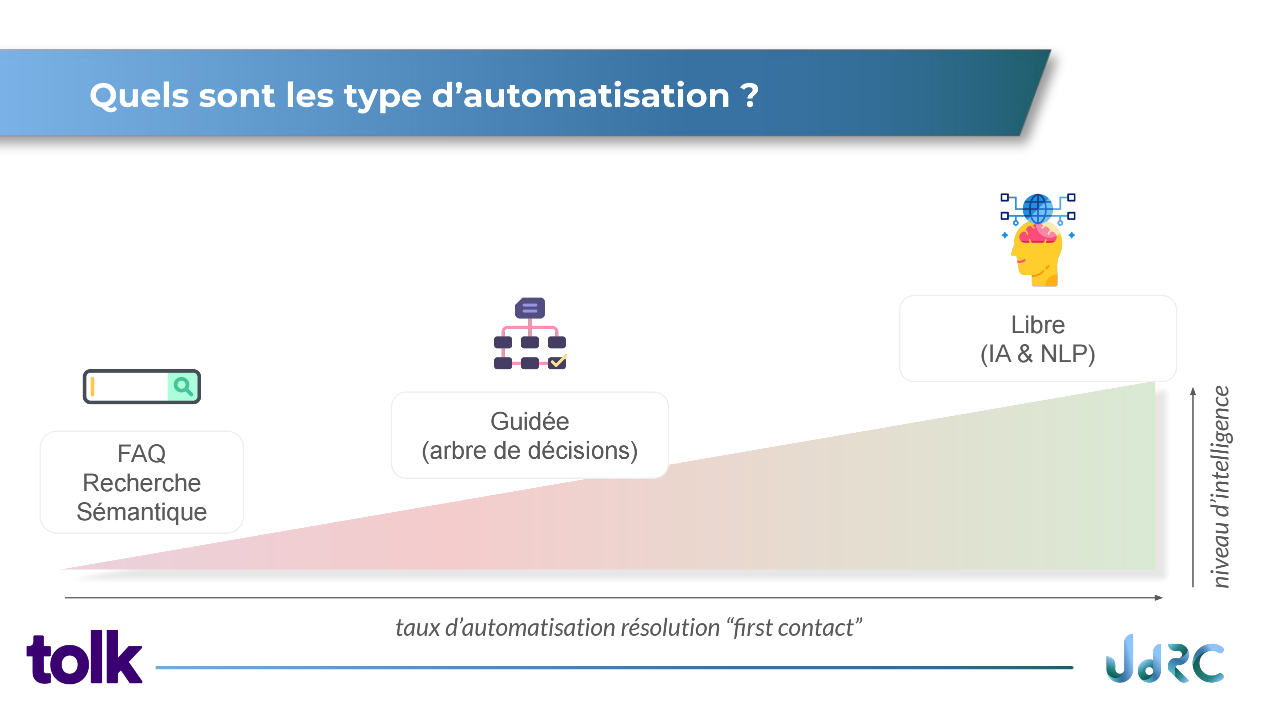Many companies still regard their customer service department as a burden, without taking into account the numerous business opportunities it could generate. Contrary to popular belief, it is now crucial to consider it as a true profit center. Chatbots can significantly improve customer service performance when embedded with artificial intelligence.
In the wake of the Covid crisis, the digitalization of many businesses has made human relationships less essential in the sales cycle. This paradigm shift has been accompanied by a reorganization of companies around new consumer expectations. Consumers are more autonomous, and no longer systematically call on the sales forces at their disposal.
Customer service: a tool for humanizing customer relations
Logically, customer service has become the main moment in the customer experience when humans intervene, sometimes the first, sometimes even the only one. Nevertheless, this interaction remains precious. It should be seen as an opportunity to get to know your target better, in order to build loyalty. It is at this precise moment that a customer can decide whether or not to return. But it's often due to a lack of time, organization or the right tools that a company is unable to stay the course.
That's why it's so important to provide your customer service department with the tools it needs to build a stable foundation for effective, long-term customer relations. The role of the customer service department is growing, and productivity issues are becoming secondary to the importance of building customer loyalty. The aim is to make them receptive to cross-selling and up-selling.
First and foremost, customer service needs to have basic information about a consumer - such as his or her history with the brand or its offer, and his or her frequentation and consumption habits - to enable it to establish a clear profile. But that's not all.
68% of customers are frustrated when their call is transferred to another department
Zendesk CX trends report 2020
Siloed teams within companies often prevent further progress. The lack of horizontal collaboration penalizes the collection and exploitation of customer data. On the customer side, the experience can be degraded. Transfer from one department to another, lack of consistency in the information shared, difficulty in offering personalized, contextualized assistance. Yet this is the key to building a strong bond between customer and brand.

To sum up, if a customer service department is to help build loyalty and increase the company's revenue (upsell or cross-sell), it is essential to give it the place it deserves, and to invest in the tools that will enable it to maximize the value perceived by the customer, at every interaction.
Chatbots to enrich customer knowledge
Human interaction is precious for your customers, but costly for the company. It is therefore necessary to rethink the place of the human element in the customer experience to ensure that you get the most out of it, in terms of customer satisfaction, perceived value and sales generated directly (upsell or x-sell) or indirectly (referral, sponsorship). Rethinking the role of the human element can be achieved by implementing tools designed to reposition your intervention on high value-added, personalized and enriched interactions.
Artificial intelligence (a scientific concept that is often a catch-all and misunderstood) in a conversational context can play 2 main roles:
- - interpret and formalize the intention associated with a customer request, formulated freely in natural language (no decision tree). Here, it mimics the cognitive capacities of humans by giving meaning to a free request and associating it with a pre-determined treatment process (no, AI will never invent an answer without having been specifically trained to do so - yet!),
- - analyze your customers' behavior to predict that of your future customers/visitors. So you can anticipate expected content, assistance needs, the precise moment of purchase decision, crucial moments to avoid churn, conversion improvement levers, etc.

Understanding the benefits of artificial intelligence can help you improve the performance of your customer service agents.Automating many of the tasks they don't do, or do poorly (pre-qualification, content recommendation, demand management and "first-contact" resolution) helps to improve the wider customer experience. But it also frees up your resources for more valuable tasks, as well as speeding up demand management to meet instantaneous challenges.
Chatbots at the service of customers... and agents!
The complementarity between an AI chatbot and employees must be seen as virtuous. The point is no longer that it replaces them, but rather that it enhances their value.

This trend is rooted in the perpetual quest for productivity as dictated by customer relations centers. Offshoring, often seen as an appropriate response to the rising cost of customer relations within companies, has been accompanied by a decline in agent specialization. Business experts have become rarer, because they are too "expensive" and not productive enough.
43% of a company's customers find automated systems that prevent them from accessing a human agent (IVR, chatbots without escalation, e-Mail, ...) frustrating.
ZENDESK CX TRENDS REPORT 2020
But the increase in agent productivity made possible by their systematic alienation (sometimes to the point of robotization) has shown its limits.
Human beings must not be discarded or depreciated. Quite the contrary, in fact. The strengths of chatbots equipped with artificial intelligence, combined with those of expert employees, produce rapid results, responding favorably to the challenges of immediacy, personalization, customer satisfaction and advice.
These are all valuable factors that make the difference, in a context where customer knowledge is becoming strategic and personalization indispensable.



